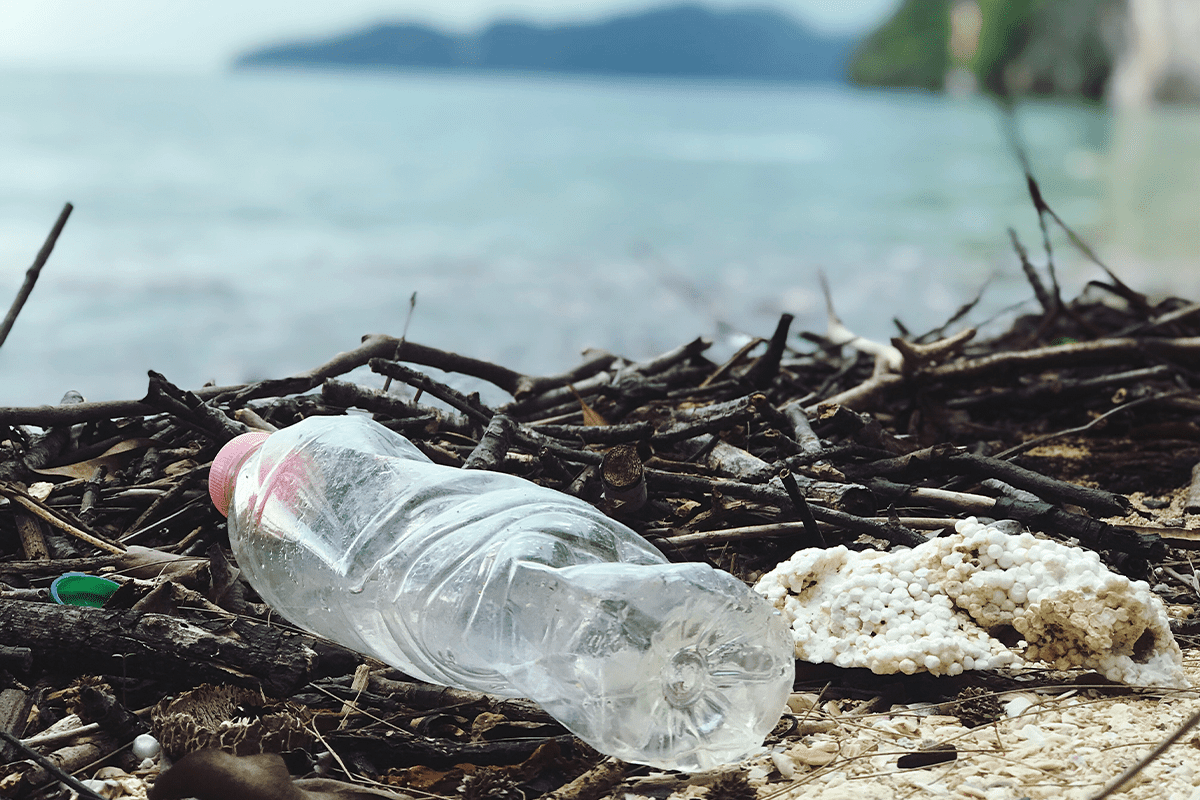Countries grappling with the “immense” task of ending plastic pollution began a new round of talks in Paris on Monday, amid protests and warnings of the urgency to act.
Representatives of 175 nations with divergent ambitions met at the UNESCO headquarters with the aim of making progress towards reaching by next year a historic agreement covering the entire plastics life cycle.
As the talks opened, the head of the negotiations, Gustavo Meza-Cuadra Velazquez of Peru, said the challenge was “immense, as we are all aware here, but it is not insurmountable”.
“The world’s eyes are on us,” he said.
French President Emmanuel Macron urged participating nations to put an end to a “globalised and unsustainable” production model, where richer countries export plastic waste to poorer ones.
“Plastic pollution is a time-bomb and at the same time already a scourge today,” he said in a video message, adding that the materials, based on fossil fuels, posed a risk to global warming goals as well as to biodiversity and human health.
He said the priorities of the negotiations should be first to reduce production of plastics and to ban “as soon as possible” the most polluting products like single-use plastics.
The stakes are high, given that annual plastics production has more than doubled in 20 years to 460 million tonnes, and is on track to triple within four decades.
Two-thirds of this output is discarded after being used once or a few times, and winds up as waste. Less than 10 percent is recycled, while more than a fifth is dumped or burned illegally.
Environmental groups have raised concerns about the influence of industry lobbying on the talks, with protests outside the venue on Monday carrying signs saying “Kick industry out”.
“What do we want? Global plastic treaty! When do we want it? Now!” protesters chanted. In nature, microplastics have been found in ice near the North Pole and in fish navigating the deepest recesses of the oceans.
In humans, microscopic bits of plastic have been detected in blood, breast milk and placentas. Plastic also contributes to global warming, accounting for 3.4 percent of global emissions in 2019, according to the OECD.
Gushing pollution
In February 2022, nations agreed in principle on the need for a legally binding UN treaty to end plastic pollution around the world, setting an ambitious 2024 deadline to reach an agreement.
Policy actions to be debated during the talks include a global ban on single-use plastic items, and production caps on new plastic production.
Delegates in Paris have to narrow down what elements should be included in the eventual draft treaty text, though technical debates had already slowed down the schedule on Monday.
Environmental groups are concerned the treaty may not include targets to reduce overall plastic production. Reduction of plastic use and production is part of a plan by the High Ambition Coalition of some 50 nations led by Rwanda and Norway, and including the European Union, Canada, Chile and –- as of a few days ago — Japan.
But many countries are reluctant to aim for absolute cuts in production, insisting that recycling and improved waste management are the answer.
These include China, the United States, Saudi Arabia and other OPEC countries, all of which have large petrochemical industries. The head of the UN Environment Programme, Inger Andersen, told the delegates that a throwaway plastic culture was “gushing pollution galore, choking our ecosystems, warming the climate, damaging our health” and that the most vulnerable were the hardest hit.
To applause, she added: “We cannot recycle our way out of this mess”.
Sprint
The Paris meeting, which runs to June 2, is the second of five sessions in the process.
One more meeting will be held this year and two in 2024 before the treaty is set to be adopted by the middle of 2025, said Jyoti Mathur-Filipp, executive secretary of the negotiating committee, adding that it would be a “sprint”.
Organisers said limited space at the venue was causing the access limitations, adding that there were some 612 organisations listed to attend in total, with around 40 linked to business.
Campaigners kept the pressure on over access to the venue during the day. Tweeting a picture of a group of around three dozen campaigners, the Center for International Environmental Law (CIEL) called for greater public participation in the process.
“We will not be silenced!” said CIEL’s Jane Patton, adding that fewer than a third of those pictured had been allowed into the venue.






